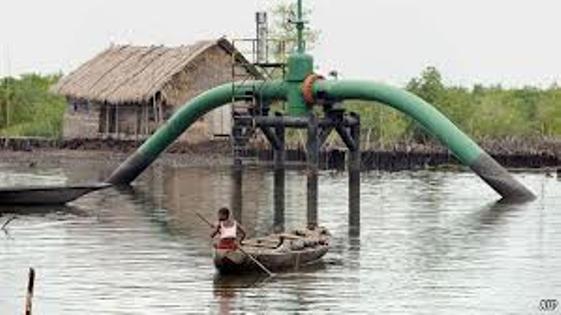BENEFITS AND CHALLENGES OF THE OIL AND GAS INDUSTRY TO CAREER AND EDUCATION (II)

Xfire is a graduate of one of the notable public universities in Nigeria, with working experience in the FMCG and petroleum industry. He currently works as an engineer in a multinational oil company in Nigeria. He is passionate about guiding people to achieve their dream careers, and he is known for his pragmatic approach towards career and life issues.
Last week, I wrote about the benefits of the oil and gas industry to career and education in Nigeria. Notwithstanding the significant contributions, the growth of the industry has ironically brought about some new challenges in both areas. Some of these challenges may not pose imminent problems but may cause long term negative effects in the society, if strategies towards addressing them are not put in place and implemented.
One of the apparent issues with potentially ominous consequences in the educational sector is the rapidly reducing number of young, brilliant graduates who are ready to return to the university to research and lecture. The oil and gas industry is financially rewarding, in contrast to the academic industry which is less financially appealing. Oil companies, known for hiring the best hands recruit the best graduates, leaving the academic institutions to settle for the rest.
This may result in a gradual decline in the quality of lecturers and researchers in the academic industry, especially in relevant technical / engineering disciplines. As a matter of fact, the regression might have already started. Many graduates only return to the university to lecture after much frustration in the labour market. I personally know a lot of graduates who became lecturers in universities, not because they wanted to be, but because they had no other available option. Most of them are left unmotivated and extremely desirous of working the oil industry. It is difficult, if not impossible to get the best from unmotivated lecturers that lack sincere passion for the teaching job.
Many smart graduates become intellectually lazy as they focus mainly on getting oil and gas jobs after graduation. Many intelligent graduates would probably have made better use of their intellect in academic and research institutions. For instance, it is odd that I am not aware of any of the several first class engineering graduates in my set that is willingly pursuing a career in the educational or research sector. Many of my former course mates swore never to return to the four walls of the university in Nigeria, preferring rather to work elsewhere or further abroad. It is also quite surprising that none of the 6 first class graduates in the set after mine is pursuing a career in the education industry. Most of them dream about working in a well-paying oil and gas company. It is the ultimate reward, not only for engineering graduates, but for almost all Nigerian graduates. No wonder, even graduates of non-relevant degrees still ask “How can I work in the oil and gas industry?” or “What certifications can I acquire to brighten my chances of working in an oil company?”
The drive to work in the industry has also led to the lopsidedness or imbalance in the variety of degrees obtained. There is a rush for courses that will give aspiring undergraduates more chances of working in the oil industry. Most students shy away from courses that are not perceived not to be relevant to the oil industry but are nonetheless necessary for the technological development of a nation. A friend who is a first class graduate in a biological science course (working in one of the biggest companies in Nigeria) once told me that one of his greatest regrets is not studying and oil and gas related course because he feels that he loses out on many lucrative opportunities in the oil industry. Science courses are the bedrock of technological advancement in any society. A society that seeks to grow and develop into technologically advanced society must balance the number of graduates from the different fields (science, engineering, arts, humanities, social sciences, management, medicine, etc). The high number of engineering graduates in comparison to science graduates automatically creates a gap in the system. But it is needless to say that the Nigerian economy does not even provide enough opportunities for fewer science graduates.
This is not only limited to education. So many workers feel unfulfilled and dejected because they do not work in the oil industry. The oil industry is the grand dream for many. I worked in an FMCG company before crossing over to the oil industry. Even though the company is one the highest paying in its industry (and probably in Nigeria), I observed that most of my former colleagues aspired to move to reputable oil firms like Shell, Chevron, NLNG, Schlumberger, etc. This may be due to the apparent wage disparity between workers in the oil industry and other industries. It may also be due to the recognition associated with working in a reputable oil firm. There was a noticeable level of dissatisfaction & discontent amongst them, and even the senior colleagues with many years of experience still longed to leave for the oil industry. I still receive enquiries from experienced employees in reputable non-oil firms asking me how they can join the oil industry. Many mistake career fulfillment to mean working in the oil industry. In reality, career fulfilment can be achieved outside the oil industry. As a matter of fact, there are many oil workers that are not fulfilled career-wise. The desperation of both the employed and unemployed to work in an ‘oyel’ company provides opportunities for scammers to hoodwink and defraud unsuspecting job seekers.
On the other hand, oil and gas employees are not willing to leave their comfort zone to explore bigger opportunities in the business world. I hardly see employees of reputable oil and gas companies seeking to explore alternative opportunities. The remuneration and other attractive incentives in the industry encourage low risk tolerance and complacency amongst its workers. There is little drive for new adventures. It is the ideal ‘heaven’ for many. This sense of contentment, though, not bad, can soften the desire of many to venture entrepreneurship. Ambition is necessary for success. It is possible that some would have achieved much more but settled for less within their comfort zone.
Nigeria relies dominantly on oil and gas because it’s an easy way to get sustained revenue. Not enough effort has been made by the successive government to develop other sectors that can potentially compete with the oil industry in terms of fund generation. The manufacturing sector is in dire need of revival, its near collapse a consequence of poor infrastructure and low investment. Most foreign investors prefer to invest in the booming oil industry. They are not even ready to invest in the more laborious and less profitable downstream sector (refineries, gas processing plants, etc) which has the potential to accelerate industrialization and provide many jobs. They are more interested in the money-spinning upstream industry. Other mineral resources have not been developed to their full potentials. The steel industry in Nigeria has the capacity to generate large revenue but its development has remained an illusion in Nigeria. The over reliance on oil is one of the major reasons that some suggest that the discovery and development of crude has been more of a curse. The number of jobs that would have been created in a diversified economy would certainly have been more than that currently generated in the oil industry. While it is grossly unfair to blame oil industry for the monotonous nature of our economy, it must be acknowledged that the political and economic will to embark on aggressive diversification of the economy has always been weakened by the access to easy ‘oil money’. One can only wonder how much jobs would have been available if the nation had remained focused on growing the real sector.
In conclusion, these identified challenges can be overcome through the institution and implementation of viable and workable socioeconomic policies; provision of critical infrastructures, strict adherence to the rule of law and reduction in corruption; and lastly, visionary and purposeful leadership.
Established in March 2013, JarusHub is a Nigerian information hub with focus on career and management. It is rated Nigeria's most authoritative destination for online career resources. It parades an array of Nigerian professionals who share their career experiences with a view to bridging career information gap and mentoring a generation to success. Whether you're a student, a recent graduate or an established professional, or even an executive, you will always find something to learn on JarusHub. All enquiries to jarushub@gmail.com or 0808 540 4500. Facebook: www.facebook.com/jarushub; Twitter: @jarushub or @mcjarus.
Career Q&A with Jarus: Oil & gas career, poor CGPA
September 17, 2023What is Career Counselling? How to choose the Right Career?
October 24, 2022








Am writing statement of purpose on how scholarship to study abroad for masters in oil and gas law will help in Nigeria national development, can you help me on that please.
Send email to jarushub@gmail.com